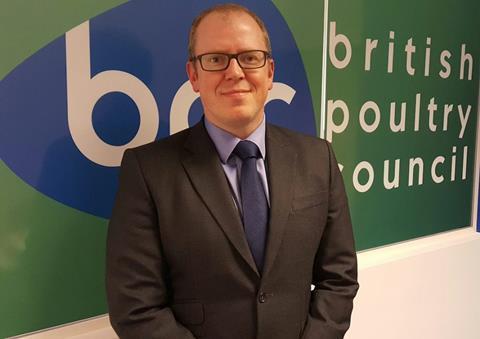The recently published US Trade Representative report has incited a negative response from the British Poultry Council. The report lays out what the US sees as restrictions to trade all around the world.
The 500 page report indicates that the US wants to ‘get rid of’ rules on everything from animal welfare to chemicals, to the import of crops for biofuel. It also suggests that Britain’s world-class animal welfare and food safety standards are ‘unnecessary’ and ‘restrict trade’.
The British Poultry Council has reacted to the report, stating that trading partners must respect British food production standards.
Chief executive, Richard Griffiths, said: “It is insulting of the US to offer trade products that do not meet British food production standards and to suggest that our world-class animal welfare and food safety standards unnecessarily restrict trade.

“British poultry producers don’t dip their chicken carcase in chlorine as we do not believe in ‘cleaning up at the end’ or taking any short-cuts when it comes to producing safe food. Using chemicals to disinfect food at the end of a production process can hide a multitude of sins, but what it can't hide is the need for their use in the first place.”
Griffiths also said that British farmers have worked incredibly hard to build a food system that enhances British food values and ensures high standards of production from farm to fork.
“We know that British consumers are unwilling to accept lower standards as part of a trade deal with the US,” Griffiths continued. “One of the recent polls commissioned by the Institute for Public Policy Research highlights that Britons are willing to cancel a post-Brexit deal with the US in order to protect UK’s animal welfare and food safety standards.
“Britons demand safe, wholesome, and nutritious food; world-class animal welfare; production that respects the environment; food that is affordable and available; and a sustainable and secure supply chain. Our trading partners must respect that.”
The British Poultry Council concluded by stressing the need for a secure post-Brexit deal – one that bolsters Britain’s future food security and safety, and enhances Britain’s reputation on the global stage.
This story was originally published on a previous version of the Meat Management website and so there may be some missing images and formatting issues.















